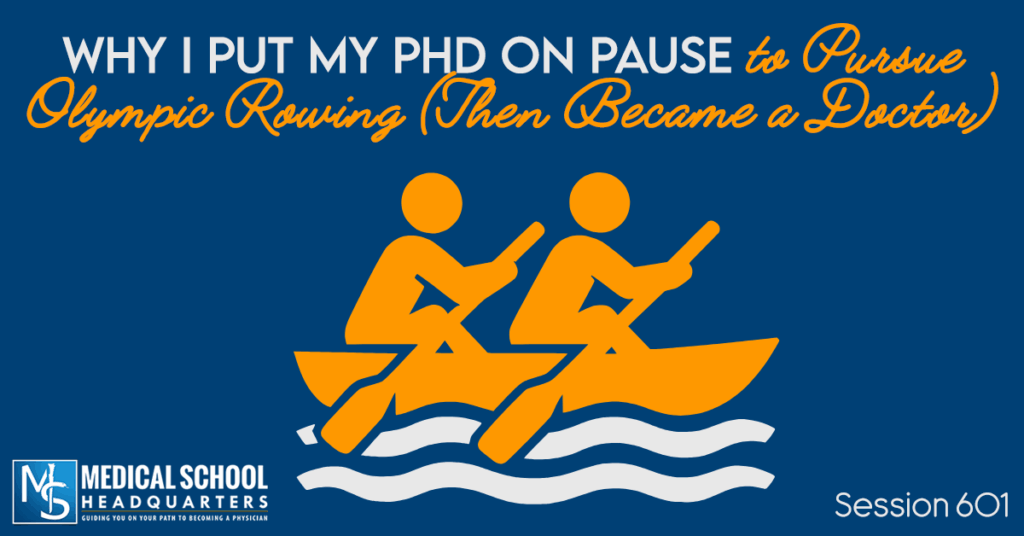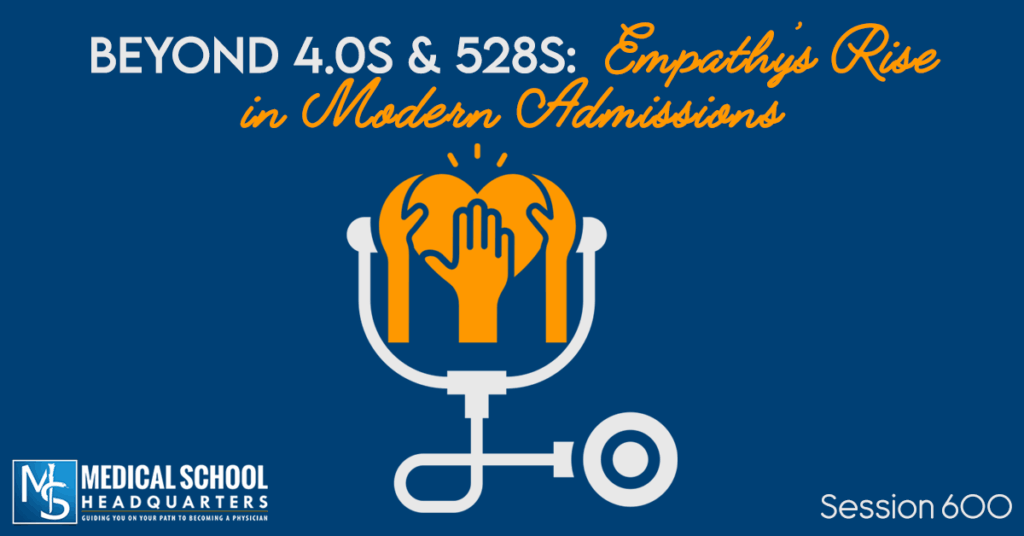Congratulations! You’ve been invited to interview for medical school. That email popped into your inbox and you responded faster than lightning. The date is saved in your calendar, and you already have your plane tickets! Now you ask, “How do I prepare for this critical part of the application process?”
First, you should know that medical schools have various interview styles. Some interview in groups, others individually. Some interviewers will know your grades and scores, while others just know your name. Here’s a podcast episode contrasting the traditional medical school interview with the multiple mini interview (MMI) format.
Whatever types of medical school interviews you have, the tips listed below will help you succeed during your medical school interview.
10 Medical School Interview Tips
1. Be honest.
I can’t emphasize this enough. Medical school admissions committees want to get a sense of who you are in the short time that they spend with you. Many interviewers have already read about you and know where you’re from, where you’ve gone to school, and what volunteer work you did last summer. During your interview, they want to get a sense of who you are. They want to get a sense of your character.
If they ask about why your grades slipped a little in one semester, be honest about why. Click To TweetIf they ask about why your grades slipped a little in one semester, be honest about why. Use the moment as an opportunity to talk about what you learned from that experience. If they ask you what field of medicine you are interested in and you honestly don’t know yet, don’t make something up—just be honest and be yourself.
As an applicant to medical school, you are being considered for a profession in which one’s integrity is of the utmost importance. So be honest with your answers. Really, this is one of the simplest medical school interview tips—just tell the truth—but it’s important.
Now Available! How to Excel at the Medical School Interview
Get access to our 13-video course walking you step-by-step through the medical school interview process. We’ll show you what to wear, how to prepare, and more importantly, how to shine during your medical school interview! We’ll show you what to do after your interview, too. Get it now!
2. Be enthusiastic.
Interviewers are looking for applicants who are passionate about becoming physicians. It takes a lot of drive and dedication to become a physician over many years of hard work. You need to demonstrate this passion, drive, and excitement about your chosen profession.
Interviewers are looking for applicants who are passionate about becoming physicians. So make sure your passion comes through.Click To TweetIf you keep your head down and your tone of voice flat and you don’t make an impression, your application most likely will not make an impression either. Be in touch with why you want to be a physician.
Think of the patient encounters and the experiences you’ve had that have cemented this choice in your mind. Make sure your passion and dedication come through in how you speak to the interviewer.
3. Be respectful and courteous to everyone you meet.
Make sure to be kind and courteous to everyone, from the administrative staff to students you meet to your interviewers. As a physician, you will work as part of a team. No matter what setting you’re in—office practice, large academic teaching hospital, or small community hospital—you will need to work with a team as a physician.
On your interview day, be gracious and demonstrate that you recognize that everyone in the admissions process plays an important part. It’s not unusual for your tour guide to give feedback about you to the admissions committee. So make sure the impression you give to everyone is a positive one.
4. Don’t be arrogant.
You may have the highest GPA in your class and the highest MCAT score in your state, but if you come off as haughty and superior, you will likely burn bridges and destroy your chances of admission.
There is a certain confidence that is required in being a physician, but don’t ever mistake this for arrogance. When a physician is arrogant, he or she is much more likely to make mistakes. Being a physician also requires a dedication to lifelong learning, so don’t ever make the mistake of thinking that you know it all.
There is a certain confidence that is required in being a physician, but don't ever mistake this for arrogance.Click To Tweet5. Prepare answers to common questions ahead of time.
Read these 10 commonly asked questions and generate answers to those questions. Ask a friend, advisor, teacher, or parent to sit down with you to practice answering questions. If you have the equipment, or can borrow it, it is a great idea to record yourself answering questions. Take note of any issues with verbal pauses, anxiety, or body language.
Update: Since publishing this article, we have made available an Anytime Mock Interview Platform to help you prepare for answering common medical school interview questions. I also now offer 1-on-1 Mock Interview Prep with me personally.
6. Watch your body language.
There is a reason that everybody says “don’t cross your arms” during an interview. Crossing your arms communicates that you are not interested or that you are “closed off.”
Crossing your arms communicates that you are not interested or that you are 'closed off.'Click To TweetFind something comfortable and non-distracting to do with your hands. You will typically have a portfolio with papers in it. Grabbing onto that is usually a good place to start. As with your hands, keep your feet and legs “quiet.” Nothing is more distracting than the room shaking because you’re pounding on the ground faster than Thumper.
Lastly, maintain a good amount of eye contact without making your interviewer uncomfortable. Eye contact shows engagement and interest.
7. Stand out, but not with your clothes.
This is a professional job interview. Your Friday night dress or your plaid golf pants are not appropriate for your interview. You don’t have to be plain, but definitely do not go overboard.
You can never go wrong with black or navy. Gray and beige are also neutral colors that are acceptable. Professional skirt suits and pantsuits are both okay for women. For men, a suit presents a much more professional look than slacks and a sport coat.
You can never go wrong with black or navy. Gray and beige are also neutral colors that are acceptable. Click To TweetIf you don’t own a suit, there is no need to go out and buy one. There are plenty of places to rent a suit. As with women, navy blue and black are safe colors.
8. Ask questions.
You will definitely be asked whether you have any questions about the medical school you are visiting. So make sure you prepare a list of questions for your interviewers.
Make sure you prepare a list of questions for your interviewers.Click To TweetThese questions can be about anything—the curriculum, student life, research opportunities, or even the local area. This is your opportunity to show interest in this particular school. Not asking any questions makes you look disinterested.
9. Talk to current medical students.
Your interview day is a one-time opportunity to get a sense of what life is like for current medical students at schools where you are applying. During the tour and on your lunch break, make a point of asking students about their experiences.
Don’t be afraid to ask tough questions like “What don’t you like about this school?” and “If you had to choose again, would you come here again?” You will likely get a sense of how happy students are, and this may ultimately be a very helpful factor in your decision about where to matriculate.
10. Send thank you notes.
Sending a thank you note to your interviewers is not only socially appropriate—it’s also an opportunity to communicate with someone who may be your advocate on the admissions committee.
Thanking an interviewer for your conversation regarding something unique about you, even if it’s your common love of a baseball team, a rural town in the midwest, or Pomeranians, may help make you stick out in his or her mind.
Some of the most successful interviews may consist of a 45-minute conversation about your common love for something which has nothing to do with medical school.Click To TweetSome of the most successful interviews may consist of a 45-minute conversation about your common love for something which has nothing to do with medical school. It’s useful to remind the interviewer about this to make yourself a more memorable candidate.
Bonus Medical School Interview Tip
Don’t bring your cell phone. Leave your cell phone at home, in the hotel, in the car, or anywhere else. Just keep it out of your pockets and out of your hands!
Links and Other Resources
- For more medical school interview tips, check out my book, The Premed Playbook: Guide to the Medical School Interview.
- Related episode: 5 Common Med School Interview Questions and How to Answer Them.
- Related episode: Medical Ethics Questions You Can Expect in Your Interview.
- Need MCAT Prep? Save on tutoring, classes, and full-length practice tests by using promo code “MSHQ” at Blueprint MCAT (formerly Next Step Test Prep)!








